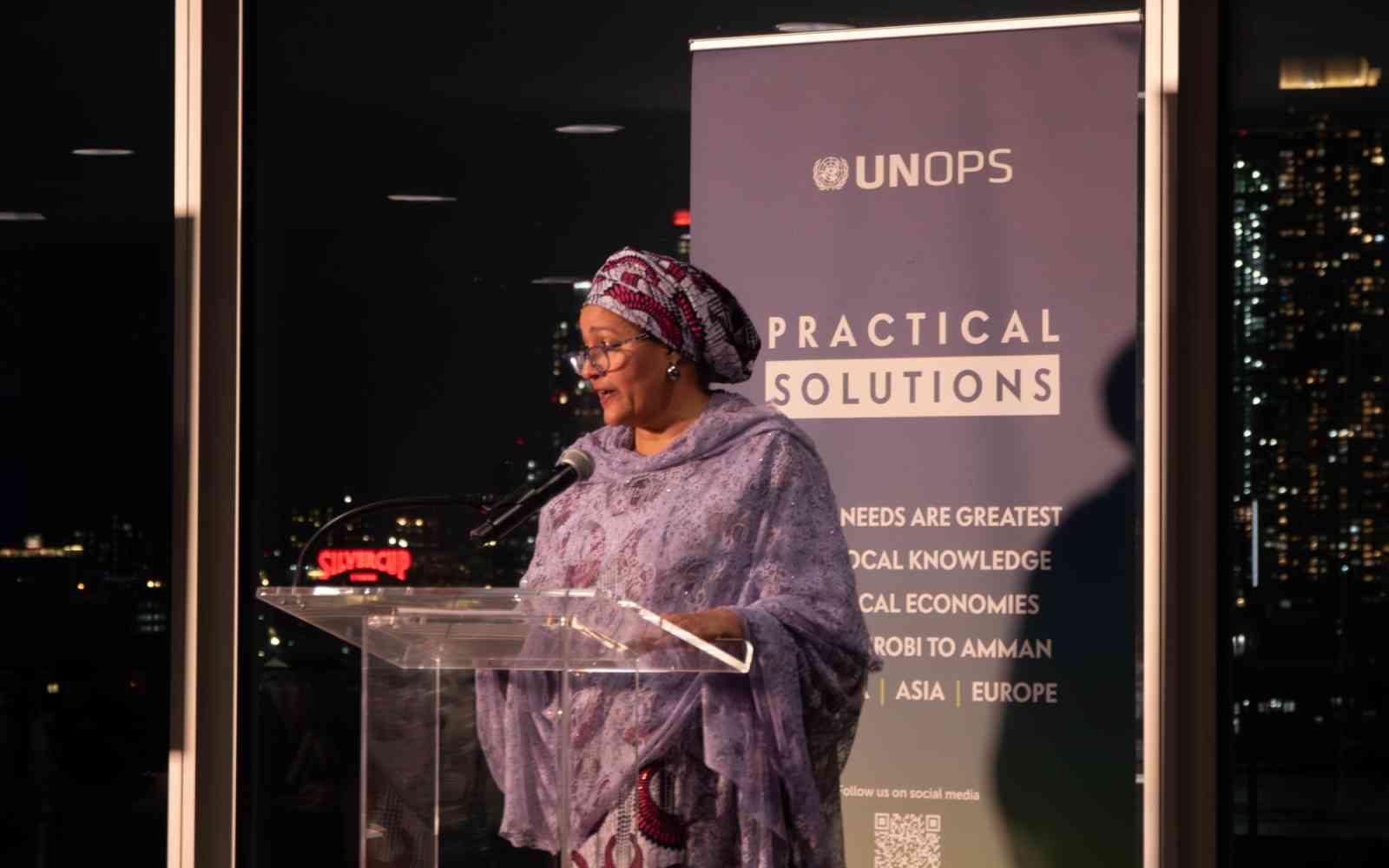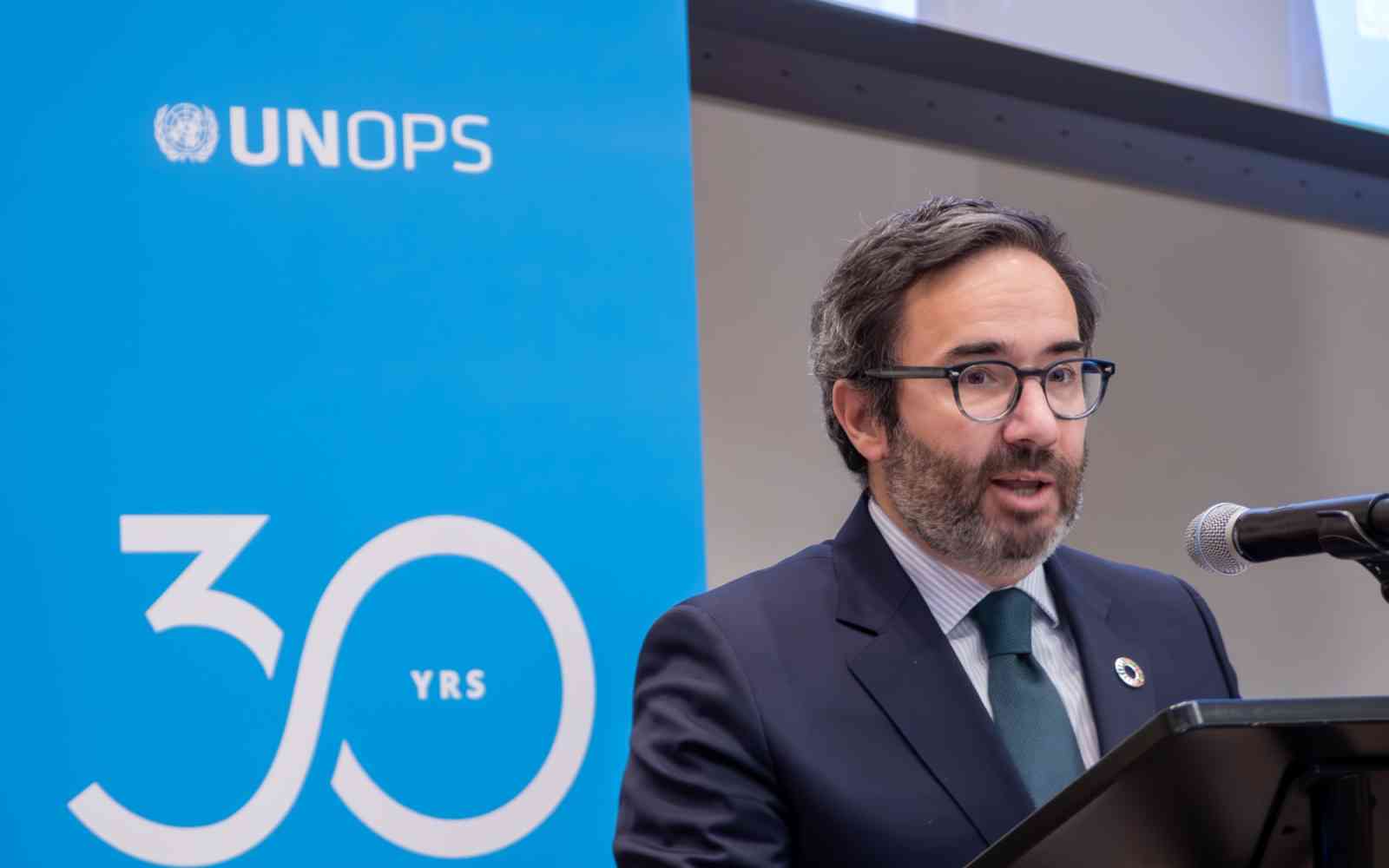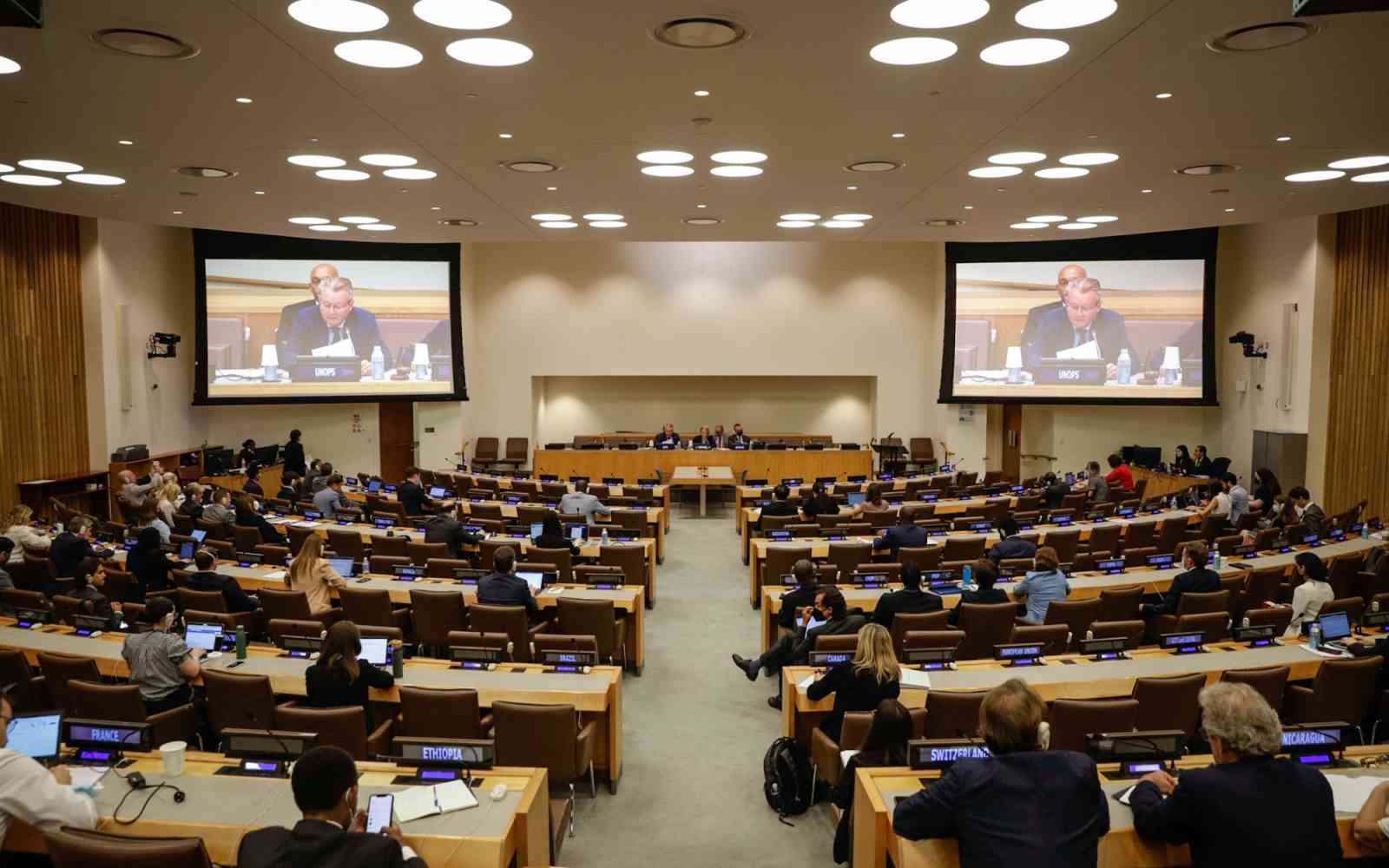The United Nations Office for Project Services (UNOPS)
Declaración de Grete Faremo ante la Junta Ejecutiva de UNOPS
Statement by Grete Faremo, Under-Secretary-General and Executive Director of UNOPS, to UNDP/UNFPA/UNOPS Executive Board Annual Session, New York – 3 June 2020.
[Check against delivery]
Mr President, distinguished representatives
Once again it is a pleasure to speak with you at this first-ever virtual formal Executive Board session. This session provides the opportunity to present the UNOPS annual report for 2019.
I will focus on topics that have been prominent in the informal discussions we have had leading up to this session: the conference room paper on the management of our net assets and our COVID-19 response.
Net assets
Over recent years, UNOPS has become a more robust and strategically-focused organization. We are proud to report solid growth and a successful approach to managing our assets. We continue to focus on delivering value for our partners.
And our partners — you — clearly recognize this. We are seeing year on year increases in demand for our services. In 2019, in total, we recorded delivery of $2.3 billion.
The nature of our work — such as infrastructure in fragile states — exposes us to high levels of risk. We work in some of the most challenging environments in the world.
Despite the challenges we face in fragile, conflict-affected and vulnerable settings, we have been able to operate with a remarkably low margin of about one per cent annually.
You have heard me say before — our business model is unique in the UN — we run like a private business. We are audited as a going concern and cannot borrow money in the banks. We had to build our own buffer to reduce our vulnerability. We put risk management at the centre.
We live off the modest fee we charge for our services. We need a low surplus to mitigate financial risks. As our annual delivery rises, our fees continue to fall, as they have done for the past three years.
Last year, our average fee dropped to 4.4 per cent. So with improved effectiveness and cost-efficiency, we are delivering more for less.
We are a project-based organization contributing to the implementation of the Sustainable Development Goals. The core of our strategy is this: only by managing our operations well, only with the trust of our partners, and only with solid finances, can we respond effectively when the world calls.
In a post-COVID-19 world, which faces a global recession of record dimensions, this will be even more important. Our partners need to see better value for limited resources.
We have presented details regarding our net assets, including a ratio of 20 per cent of net assets to revenue in UNOPS.
We did a desk review of the net assets and reserves of sister UN agencies overseen by the Joint Executive Boards. 2018 figures provided the most recent set of comparable data.
UNOPS doesn’t receive core funding or assessed contributions from donors. Yet the UNOPS figure seems substantially lower than in all other agencies in the peer group, with ratios ranging from 72 to 112 per cent.
We will review the UNOPS minimum operational reserve formula established by the Executive Board in 2013.
Prevention and preparedness
Excellencies,
Over the past few weeks, we have come together several times to take stock of the COVID-19 response.
Preparedness and resilient health systems are crucial to address future health crises. Given this importance, I will look back on 2019 through the lens of prevention and resilience. Across the world, UNOPS has established solid and strategic partnerships with governments, with international financial institutions (IFIs) and other development partners who value and trust our capacity in infrastructure and procurement.
Let me share some practical examples from last year.
- In Ethiopia, with the government, we procured and installed solar power energy systems at 167 health centres across the country. Predictable access to energy is key to safe maternal and child care services. More than 4.1 million people in rural communities benefit from significantly improved health care.
- In Guatemala, we helped stock 114 hospitals and health centres across the country with hundreds of millions of doses of medicines. An estimated 3.2 million Guatemalans benefit from improved health care as a result. Through UNOPS transparent and efficient procurement processes, the government estimated savings of around $270 million.
- In Myanmar, we help improve health services for the most underserved and vulnerable populations. We manage the Access to Health fund with $215 million worth of contributions from Sweden, Switzerland, the UK and USA.
These are just three of many examples of how we over the years have worked to strengthen national health systems, thereby enabling these governments to be better prepared, to be more resilient and to respond effectively when COVID-19 hit.
And as the virus continues its devastating journey, earlier preventive actions will help our partners prepare for and avoid the worst.
Rapid response
Rapid response has been key. You have all heard me share other examples of UNOPS immediate COVID-19 response:
- from ensuring hospitals in Iraq have intensive care unit equipment
- to delivering crucial medical supplies in Paraguay
- from raising awareness about the virus in Afghanistan
- to ensuring that prisoners have access to health services in Tunisia
- In Papua New Guinea, funded by the World Bank, UNOPS supports the government in procuring a range of medical equipment and supplies
Let me also provide practical examples of how we have re-focused to mitigate the negative socio-economic impact of the pandemic:
- In South Sudan, with a $40 million grant from the World Bank, UNOPS is helping the government provide support to 430,000 of the most vulnerable people by providing rapid cash transfers. As the COVID-19 situation subsides, cash transfers will be expanded across the country.
- In the Gambia, a project with the EU to rehabilitate rural roads became a source of support during the COVID-19 crisis. The project had managed to not just connect vulnerable communities with essential services, but also empower women and challenge gender stereotypes by providing many job opportunities to women locally. When the virus hit, it began handing out cash transfers to local workers. Women constituted over half of the recipients.
More than 60 countries have called on us to support their COVID-19 response. Stronger, more long term partnerships and our solid economic situation allow us a resolute response to the COVID pandemic compared to earlier global crises.
Socio-economic recovery
This crisis has painfully reminded us all, the most vulnerable will be the worst hit. As we look to build a better future, we must tackle the inequalities that rendered our communities so vulnerable in the first place. We are therefore helping governments and donors with the implementation of programmes that enhance the resilience of communities.
UNOPS participated in the task force developing the UN Socio-Economic Response and Recovery Plan announced by the Secretary-General. As countries look to recover, create jobs and drive growth, strengthening their infrastructure and re-establishing supply chains will be part of the priorities making it more inclusive, sustainable and, above all, more resilient to future crises.
In line with the above, I can report that approximately 80 per cent of the new engagements we have secured year-to-date with governments and donors address the long-term socio-economic recovery.
For example:
- In Sudan, funded by the government of Italy, we are improving health facilities, by designing infrastructure that benefits residents and migrant populations, and creates resilience in the face of future crises.
- In Saint Lucia, we are supporting the government in their valuable work to ensure their infrastructure, nationwide, meets the needs of the future. So that it is fit to withstand and adapt to a changing climate which continues to be a defining threat of our time. And ultimately, so that both this and the next generations can prosper.
- In the Democratic Republic of the Congo, funded by the government of Japan, we are working with national institutions to develop the skills of young people and adults, including those from isolated areas. We do this by assisting in the construction and equipping of vocational training centres.
S3I
Crucially, socio-economic recovery goes beyond what governments and ODA can achieve. It needs the participation of the private sector, at scale. The immediate response to COVID-19 brought that message home, yet again.
This makes us more committed to the path we are taking in our Sustainable Infrastructure Impact Investments (S3I) initiative. In 2019, we continued to create sustainable infrastructure ecosystems to achieve development goals.
- Overall, UNOPS S3I committed to helping build at least 860,000 homes over the next decade, making this one of the largest and most ambitious affordable housing programmes the world has ever seen.
As I have previously stated, UNOPS is grateful for the continued support of the Board in this vital initiative over the last years. In particular, I want to thank the government of Finland and the city of Helsinki, for your support as we set up our S3I home in the Finnish capital.
We are now recruiting new colleagues, to continue our visionary work to mobilize private investment for the Sustainable Development Goals.
Conclusion
Excellencies,
These are uncertain times.
But as we slowly emerge from this crisis, they are also times of hope and determination. That our way out of the crisis puts us on a path to a more equal, sustainable and resilient world.
UNOPS embraces this vision.
Before I close let me tell you that I am joined by members of my senior leadership team in this virtual meeting. I hope we can have a truly interactive Q&A session after these introductory remarks.
We are more determined than ever, to support you, Member States, and the communities that you represent, in your journey to build a better world.
Thank you.












